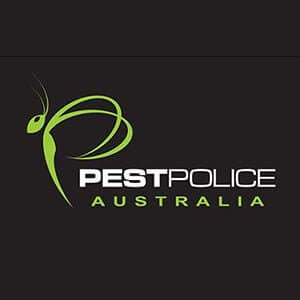Now that the Australian summer is finally here, you probably want to go to the beach, participate in a sporting event, or go on a family vacation. Even though the summer might be enjoyable, there are also some downsides. Common pests this summer are also one of the headaches that most homeowners have to deal with.
Like spring and flowering shrubs, pests and summer appear inseparable. The summertime offers the perfect environment for pests to reproduce, significantly increasing their populations due to the warm temperatures and increasing humidity. Although summer is everyone’s favourite season, its abundance of pests may be very upsetting.
In this blog, the experts at Pest Police Australia break down the pests you should watch out for, what makes common pests this summer active and what you can do to prevent and avoid them.
Let’s get rolling!
Why Are Pests More Active In Summer?
Unfortunately, the summer months bring us more than simply pleasant weather and bright beach days. They also bring a tonne of pests. In Australia, the summer months are when pests are most active. But why?
Here is a look at how each of the following factors below contributes to this.
Warm Temperatures
Since the air is dry during the colder months, pests hibernate since it is harder for them to survive. There is less food available and fewer other insects to feed on throughout the winter. Therefore, they stay in their nests until the end of the winter season.
Pests begin mating, feeding, and growing as soon as summer arrives. The environment is more accessible to common pests this summer because of the abundance of moisture. The season’s increased temperatures are favourable for their reproduction.
Mosquitoes, which prefer humid, warm temperatures, stinging insects, termites, and ants, are among the most common pests this summer because they thrive in hot weather.
Reproduction Season
Infestations multiply and become more widespread throughout the summer. They take advantage of the winter months to prepare for reproduction when the summer months arrive.
They need to replenish their nests and colonies after lying asleep for several months during hibernation. Pest reproduction occurs when new hatchlings emerge from the eggs. The soldier pests are actively looking for food to feed them during this time.
In the summer, rodents and flies both breeds actively. The more mammals venture outside, the more waste they deposit on the ground. In addition to feeding on the waste, flies also lay their eggs.
Additionally, there are more rodents throughout the summer. Rodents are also one of the common pests this summer because they have access to plant leaves, seeds, and grass.
Longer Daylight
The daylight is longer in the summer than the night. It implies that outdoor light will remain longer. Pests have more time to eat when there are more daylight hours. Because of this, there are more pests during the summer, especially during the day.
Humans are bothered by pests during this time of year. Additionally, they might bite and spread infections. Due to increased outdoor activity, you are more likely to bring pests like fleas and ticks home with you throughout the summer without you realising it.
Increased Human Activity
You will probably spend most of your time outside during the summer. You are also more likely to take a vacation during this time, which gives pests the perfect opportunity to attack your house while you are away. Fleas, rodents, mosquitoes, and bed bugs are a few pests that thrive from increased human activity.
More Food Sources
For all living things, summer is the time of year when food is easiest to come by. Cockroaches, lizards, ants, spiders, rodents, and termites will likely scurry around your home throughout the summer.
Additionally, the food web chain significantly increases the summertime pest population. More rodents, like rats, scurrying about means more food for snakes.
If there are more flies in the area, spiders will catch them on their web and eat them later. Due to their simultaneous presence, all pests consequently turn against one another.
The time of year when most people can stock is summer. Your pantry likely has a wide variety of foods and cereals, which makes it easier for pests to infest the area.
Moisture Increase
Pests are no exception to the rule that all living things require moisture to survive. Pests may easily access moisture during the summer because of the warm water vapour, making it an ideal time for their activity. For both productivity and feeding, humidity is excellent.
Active Life Cycle
Since the majority of pests are cold-blooded, the weather has a significant impact on them. They are active at different times throughout their life cycle, particularly in the summer.
The ant colonies are a good example. They grow rapidly in size. Pests reproduce to ensure the survival of their colonies throughout the colder months when they will hibernate.
Pests are active during the summer, much like people are. You discover that most pests enter your home searching for shelter from the cold weather.
Pests thrive in warm environments because they can develop more rapidly and reproduce quickly. Pests develop more offspring in the summer before hibernating in the winter.
What Are the Common Pests This Summer in Australia and How to Keep Them at Bay?
Due to the constant sunshine, longer days, and essential vitamin D, many people consider summer the best season of the year. Unfortunately, the summer season also increases the number of pests that thrive in our homes.
Continue reading to learn about the most dreaded summer pests and how to keep them at bay.
Mosquitoes
Have you ever observed how the bugs tend to emerge from hiding when the weather is warm? It is because the eggs laid previously will hatch at this time. The outcome? Increased numbers of mosquitoes.
Dengue fever, malaria, and the Zika virus are just a few terrible diseases mosquitoes are known to spread.
You can keep these little buzzers at bay by draining any accumulated rainwater, trimming bushes, and always keeping fly screens closed.
Fleas
Our dogs and cats enjoy playing outside as we people do in the summer. Due to this, your pet is in danger of contracting fleas, which can potentially infest your house.
In addition to causing uncomfortable bites, fleas can transmit diseases when they come into contact with their hosts’ blood when feeding.
Reduce the likelihood of flea infestations by routinely cleaning your pet with flea soap, keeping your yard neat by cutting back bushes, and mowing the lawn, as these are prime locations for fleas to jump onto hosts.
Flies
Flies and summer go hand in hand, as anyone who has visited the Aussie outback will attest. Food spoils more quickly in warm weather, which leads to the development of eggs, larvae, and flies.
Flies are both obstinate and harmful to your health. They are notorious for having some of the worst eating habits and will consume nearly anything. They pose a risk to human health because of this behaviour because they frequently carry infections on their hairy bodies, spreading them wherever they land as they jump from one food source to another.
Empty all trash cans and pet toilets regularly to keep your home free of flies. Another excellent approach to keeping these pests at bay is using a fly screen.
Ants
In Australia, ants are most likely the most widespread insect. You are very certain to come into contact with one of these insects because there are over 1300 known species and subspecies, and this is especially true during the summer when their populations increase.
Ants are more prevalent outdoors, yet they won’t hesitate to enter homes. If they notice food, they will happily welcome themselves into your home to eat. A perfect party for ants is an outdoor picnic or barbeque.
By making sure you clean up all food scraps, you can keep them at bay and lessen the likelihood that they may enter your home.
Protect Your Home from Common Pests This Summer with Pest Police
Do you have a summer pest problem? Don’t wait for the problem to worsen, especially if you have nesting pests on your property like the ones mentioned above. Call the pest professionals of Pest Police Australia at 1800 737 876. We have the tools and the experienced team to help you with your Melbourne pest problem.
We also offer environmentally friendly pest control solutions. This service is available to everyone, not only property owners concerned about their every move’s environmental effects. There is an increasing need to contribute to house pest protection without significantly interfering with your daily life.
Our team has experience dealing with problematic pest infestation situations. In addition to receiving a lot of referrals for new clients and repeat business, we take great pride in our stellar Google Review Rating performance.
For rapid, effective, and dependable service, schedule a timely pest inspection and control service utilising only environmentally friendly products and procedures. Contact us right away to take advantage of the many advantages that Melbourne’s eco-friendly pest control has to offer.

